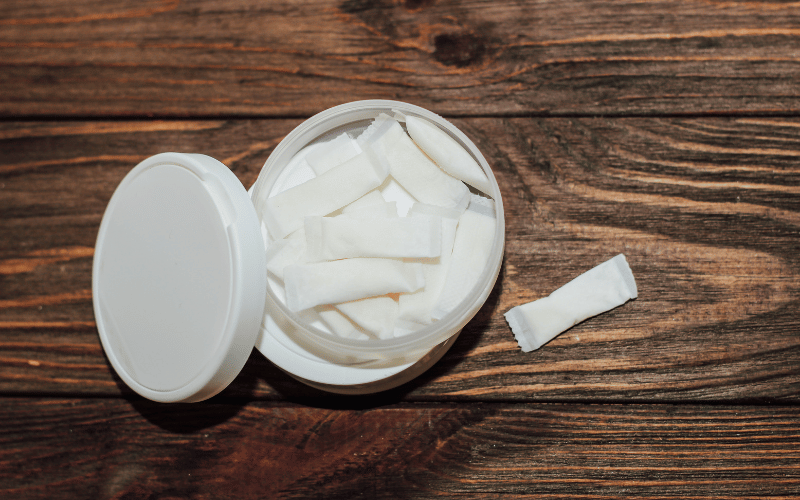Everything You Need to Know about Snus: Smokeless Tobacco

In this reign of tobacco products, Snus is becoming popular as a smokeless option to cigarettes and other modes of tobacco consumption. Originating in Sweden, it has a long record and unique characteristics that set it apart from other tobacco products. In this article, we’ll dive into everything you need to know about Snus, from its history and manufacturing to its health effects and legal status.
Production and Varieties
Snus is made from air-dried tobacco, ground mixed with water, salt, and sometimes flavoring. The resulting mixture is pasteurized, a process that eliminates harmful bacteria while preserving the flavor and nicotine content of the tobacco. The end product is a small, teabag-like pouch that holds moist tobacco. These pouches are available in various flavors, containing traditional tobacco, fruit, mint and more.
Two main types of Snus are available: Loose Snus and portioned Snus. The former is excellently ground tobacco that people mold into a tiny pouch before keeping under their upper lip. The latter comes pre-packaged in miniature teabag-like pouches, becoming more convenient for users who prefer not to handle loose tobacco.
How Snus is different from other tobacco products?
Snus is unique amidst tobacco products for multiple reasons:
Smokeless: Unlike cigarettes and cigars, you can try Snusdirect. It is consumed without burning or inhaling the smoke. This makes it a less harmful alternative for those looking for a smoking experience without the risks associated with smoking.
Spitless: One of the most outstanding features of Snus is that it has no spit. Users do not need to spit constantly when using, which makes it more discreet and socially acceptable in many cases.
Nicotine Content: Snus contains nicotine, providing the user with high levels of nicotine similar to cigarettes but without the harmful effects of inhaling the smoke.
Reducing Health Risks: Many studies show that Snus is less harmful than smoking. While not completely risk-free, it is associated with a reduced risk of lung cancer and other smoking-related diseases.
Controversies: There is also some controversy surrounding Snus. Some health organizations say this could be the door to smoking, especially among young people. There are also concerns that Snus-flavored products may appeal to non-smokers and young people.
Legal Status around the World
Snus’ legal status differs from country to country. In many European countries, snus is banned or badly regulated due to concerns about health effects and its potential to increase tobacco use. However, it is widespread and popular in Sweden, where it has cultural roots.
In the United States, Snus is legitimate and available for purchase, but it has not achieved the same favour as other tobacco products such as cigarettes and smokeless tobacco. Several US tobacco companies manufacture Snus products to serve a niche market of users looking for a smoke-free alternative.
Conclusion
Snus is a particular smokeless tobacco product with a lengthy history and growing popularity worldwide. While not completely risk-free, it gives a less harmful alternative to smoking and gives users nicotine proficiency without the need to inhale the smoke. However, it is essential to be aware of the addictive potential of nicotine and use Snus responsibly. While its popularity continues to grow, it remains a subject of debate and research in the world of public health and tobacco regulation.





